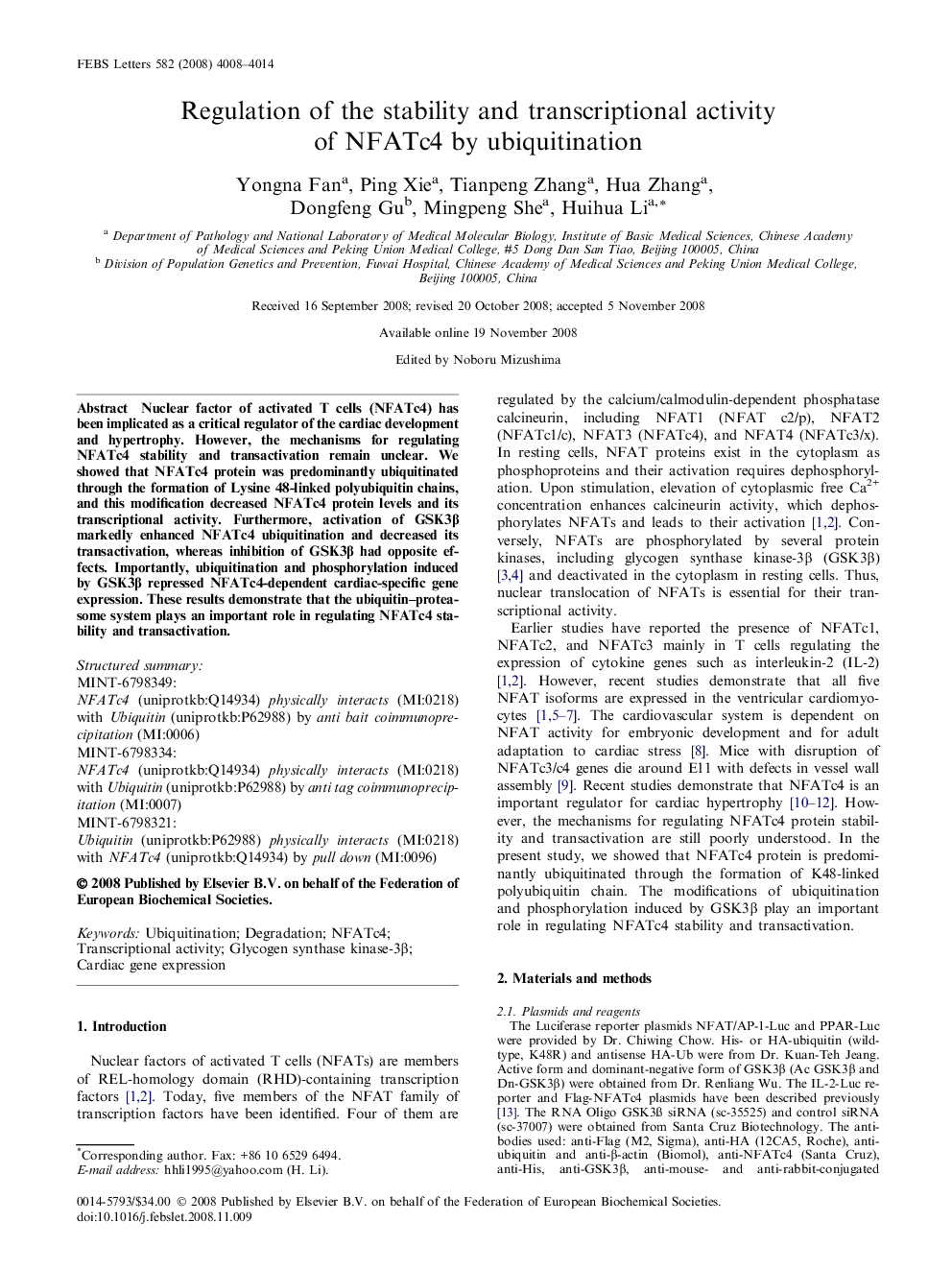| کد مقاله | کد نشریه | سال انتشار | مقاله انگلیسی | نسخه تمام متن |
|---|---|---|---|---|
| 2050708 | 1074178 | 2008 | 7 صفحه PDF | دانلود رایگان |

Nuclear factor of activated T cells (NFATc4) has been implicated as a critical regulator of the cardiac development and hypertrophy. However, the mechanisms for regulating NFATc4 stability and transactivation remain unclear. We showed that NFATc4 protein was predominantly ubiquitinated through the formation of Lysine 48-linked polyubiquitin chains, and this modification decreased NFATc4 protein levels and its transcriptional activity. Furthermore, activation of GSK3β markedly enhanced NFATc4 ubiquitination and decreased its transactivation, whereas inhibition of GSK3β had opposite effects. Importantly, ubiquitination and phosphorylation induced by GSK3β repressed NFATc4-dependent cardiac-specific gene expression. These results demonstrate that the ubiquitin–proteasome system plays an important role in regulating NFATc4 stability and transactivation.Structured summaryMINT-6798349:NFATc4 (uniprotkb:Q14934) physically interacts (MI:0218) with Ubiquitin (uniprotkb:P62988) by anti bait coimmunoprecipitation (MI:0006)MINT-6798334:NFATc4 (uniprotkb:Q14934) physically interacts (MI:0218) with Ubiquitin (uniprotkb:P62988) by anti tag coimmunoprecipitation (MI:0007)MINT-6798321:Ubiquitin (uniprotkb:P62988) physically interacts (MI:0218) with NFATc4 (uniprotkb:Q14934) by pull down (MI:0096)
Journal: FEBS Letters - Volume 582, Issue 29, 10 December 2008, Pages 4008–4014